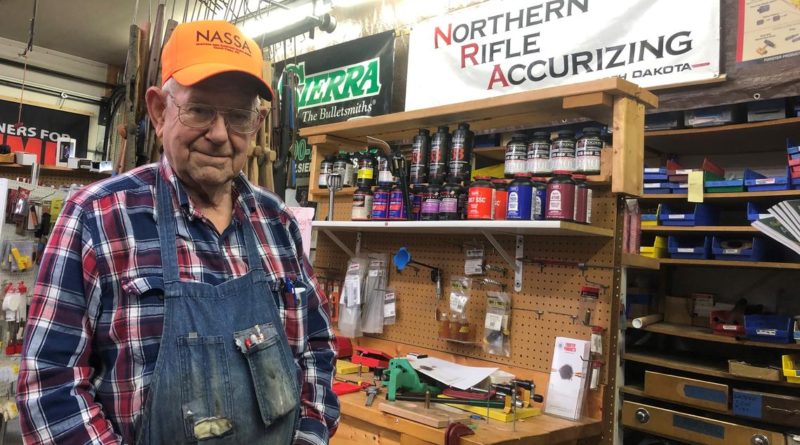‘Overwhelming demand’, COVID-19 and politics lead to national ammunition shortage
The shortage is caused by a number of factors. Ammunition manufacturers have not been immune from the coronavirus pandemic, and the change in the presidential administration has some worried about stricter firearm laws. Adding in record numbers of new buyers and background checks for firearm permits means supplies will be scarce for sometime.
“Our inventory is way down, and most of the suppliers are sold out on what they have and the manufacturers are sold out,” said Gordy Linnell, who owns Northern Rifle Accurizing, a Grand Forks-based gunsmith. “The only inventory is what’s being made from day to day.”
Linnell and his staff build custom order rifles, or modify off-the-rack rifles, to be more accurate. The shop also offers repair and maintenance services for firearms. Linnell said he carries a small amount of factory ammunition, but mostly stocks materials for reloads — brass, powder, primers and bullets — and Linnell said he is “scratching the bottom of the barrel” for those supplies as well.
For Linnell, who said he has been getting calls for ammunition from new gun owners, as well as his regular customers, the shortage is political in nature. In 1993, then-Sen. Joe Biden, D-Del., assisted in passing the Brady Handgun Violence Prevention Act, which established the background check system. A year later, Biden worked to enact a 10-year ban on assault weapons and high-capacity magazines. He continued work to regulate the industry while he was vice president of the Obama administration.
“A lot of people are kind of afraid with Biden in there that we’re going to be hit with a lot of new firearms laws,” Linnell said.
Mark Oliva, Director of Public Affairs at the National Shooting Sports Foundation, an industry trade group, said gun sales typically increase in presidential election years; 2020 was no different, particularly after Biden, in a June 2019 Democratic presidential primary debate, referred to gun manufacturers as “the enemy,” Oliva said.
“We’re probably seeing the most contrasting examples of gun control versus gun rights between President Biden and President Trump, than we’ve ever seen put forward to the American voter before,” Oliva told Forum News Service.
But politics alone doesn’t account for the shortage that has shelves nearly empty at large retailers, including Home of Economy and Cabela’s. Sales increased when the pandemic shuttered schools and businesses, and some governors issued stay-at-home orders. Some police departments took officers off the street if they contracted COVID-19, or were exposed to an infected person, so as not to be vectors of transmission, according to Oliva, adding that the increased response time had some people looking to protect themselves.
According to Oliva, there were 21 million background checks for firearm sales in 2020, which he said “by far and away shatters” the record for checks previously. Existing gun owners are continuing to buy, but more than 8.4 million people bought a firearm for the first time in 2020, and they need ammunition to practice and keep at home. In 2019, there were 13.2 million checks. The highest year before 2020 was in 2016, when there were 15.7 million background checks.
Social unrest stemming from the death of George Floyd, who died in Minneapolis in late May after police officer Derek Chauvin knelt on his neck for minutes, has spurred some to buy firearms for protection, also. According to a National Shooting Sports Foundation retailer survey, women made up 40% of all the gun buyers in 2020, and sales to African Americans increased 58% from 2019 to 2020.
The shortage is compounded by what Oliva called the “toilet paper effect,” which makes people want to stock up on ammunition when supplies are low, and manufacturers can’t keep up with the demand.
In a YouTube video that has been viewed nearly 2 million times, Federal, CCI, Speer and Remington President Jason Vanderbrink assured people his factories are working to produce ammunition. In the video, Vanderbrink said he’s “tired” of hearing that his factories aren’t producing and attempted to debunk theories that say, among other things, ammunition makers are storing their goods in secret warehouses.
Oliva said manufacturers are working at full capacity to meet consumer’s needs, but they “don’t have an extra factory sitting in the backyard.”
“It’s really just a matter of overwhelming demand,” he said.






